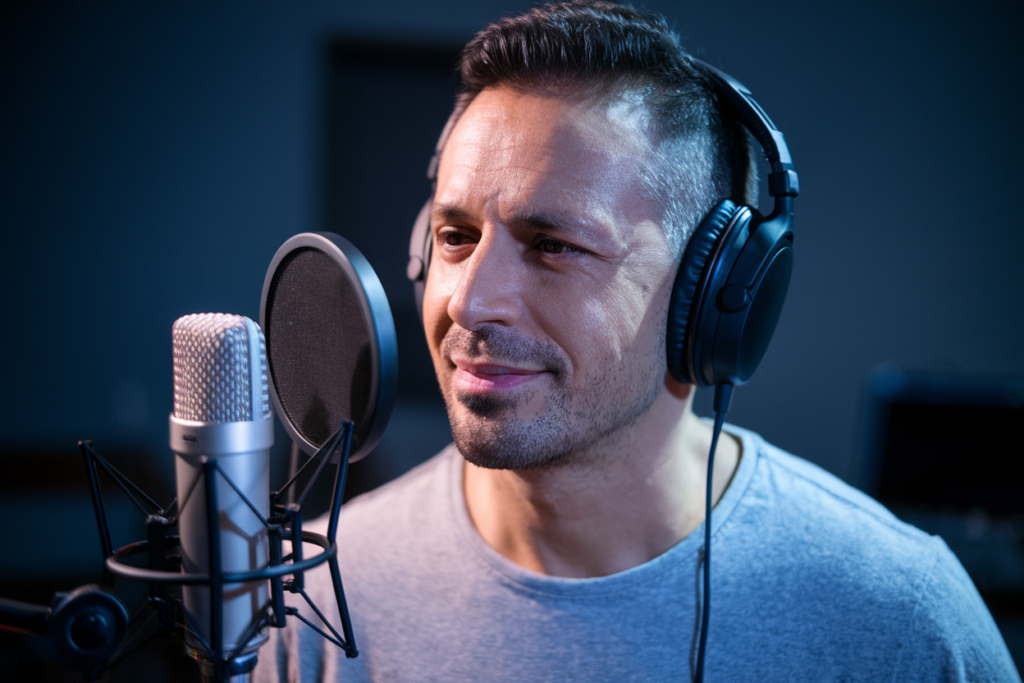Key Takeaways
- Approximately 75 million people worldwide speak Turkish as their mother tongue, making it one of the most widely spoken languages globally.
- About 85% of Turkish speakers are fluent, highlighting the importance of proficiency for effective communication and collaboration.
- Turkish serves as the official language in Turkey and is also recognized in countries like Cyprus, Germany, France, and the Netherlands due to significant diaspora communities.
- Education systems in Turkey emphasize grammar and vocabulary, enhancing fluency among students while promoting bilingualism through foreign language programs.
- Cultural engagement through media such as films, music, and literature plays a key role in improving fluency by providing immersive practice opportunities.
- Mastering Turkish not only enriches personal connections but also broadens professional prospects in industries like media, entertainment, and business.
Ever wondered just how many people speak Turkish fluently? With its rich history and unique linguistic features, Turkish is more than just a language; it’s a bridge connecting cultures across continents. You might be surprised to learn that around 75 million people worldwide call Turkish their mother tongue, making it one of the most widely spoken languages.
As globalization continues to break down barriers, understanding the reach of Turkish can open up new opportunities for travel, business, and cultural exchange. Whether you’re planning a trip to Turkey or simply curious about this fascinating language, knowing how many people speak it fluently can provide valuable context. Let’s dive deeper into the world of Turkish speakers and uncover what makes this language so significant today.
Overview Of Turkish Language
Turkish is a vibrant and rich language spoken by around 75 million people as their mother tongue. This makes it one of the most widely spoken languages globally. With roots in the Turkic language family, Turkish has evolved over centuries, incorporating elements from Arabic, Persian, and French.
The language plays a crucial role in connecting diverse cultures across Turkey and neighboring regions. Its unique vowel harmony and agglutinative structure allow for expressive communication. You might be surprised to learn that mastering Turkish opens doors to understanding its literature, music, and history more profoundly.
For those interested in voiceover work or engaging with Turkish speakers through voice talent, grasping the nuances of the language can enhance your projects significantly. Whether you’re looking for a native speaker’s warmth or an authentic accent for your voiceovers, knowing how many people speak Turkish fluently adds value to your endeavors.
Overall, understanding the scope of the Turkish language not only broadens personal horizons but also enhances professional opportunities in various fields such as travel, business, and cultural exchange.
Global Turkish Speaking Population
Around 75 million people speak Turkish fluently, making it one of the most widely spoken languages worldwide. The presence of Turkish speakers spans various countries and regions, reflecting the language’s rich cultural heritage.
Countries With High Turkish Fluency
Turkish is predominantly spoken in several countries, including:
- Turkey: The primary nation where Turkish serves as the official language.
- Cyprus: Recognized as a co-official language alongside Greek.
- Germany: Home to a significant diaspora with around 3 million Turkish speakers.
- France: Hosts approximately 700,000 individuals fluent in Turkish due to its immigrant community.
- Netherlands: Around 400,000 residents speak Turkish.
These figures illustrate how the influence of the Turkish language extends beyond its native borders, connecting diverse cultures through communication.
Estimated Percentage Of Fluent Speakers
Estimates indicate that about 85% of those who speak Turkish do so fluently. This high percentage underscores the importance of proficiency for effective interaction within cultural contexts. In various industries like media and entertainment, strong command over the language proves invaluable. For instance, voice talent working on projects targeting a Turkish-speaking audience benefits greatly from fluency—ensuring authentic delivery and resonance with listeners.
Understanding these statistics can open doors for collaboration in voiceover work or other fields requiring clear communication with this vibrant demographic.
Factors Influencing Turkish Fluency
Several factors contribute to the fluency of Turkish speakers, impacting their ability to communicate effectively in various contexts.
Education Systems
Education plays a critical role in shaping language proficiency. In Turkey, Turkish is the primary medium of instruction across schools and universities. Formal education emphasizes grammar, vocabulary, and pronunciation, enhancing fluency among students. Additionally, programs that incorporate foreign languages often promote bilingualism or multilingualism. This exposure allows individuals to navigate different linguistic landscapes more effortlessly.
Cultural Influence
Cultural engagement significantly influences fluency levels in Turkish. Media such as films, music, and literature provide immersive experiences that help speakers practice conversational skills and understand nuances within the language. Participation in community events or cultural festivals also fosters connections with native speakers, enriching one’s command of Turkish. Voice talent who immerse themselves in these cultural aspects often find it easier to convey emotions accurately in their work—whether it’s through acting or voiceovers—ensuring authentic connections with audiences.
Understanding these factors can deepen appreciation for the language’s intricacies while highlighting its relevance across personal and professional spheres.
Implications Of Turkish Fluency
Understanding Turkish fluency opens up numerous opportunities for you, especially if you’re involved in industries like media or entertainment. With around 85% of the 75 million Turkish speakers being fluent, effective communication becomes essential. Imagine the impact on your projects when voice talent can deliver messages that resonate authentically with Turkish-speaking audiences.
Fluency in Turkish enhances connections across cultures. Engaging with native speakers allows you to grasp subtle nuances and expressions that enrich storytelling and character development. If you’re a voice artist or actor aiming to portray a genuine character from a Turkish background, mastering the language provides depth and authenticity.
Turkish fluency also broadens market reach. Many businesses recognize the importance of connecting with diverse audiences through localized content. By utilizing proficient voiceover services that understand cultural contexts, your message gains credibility and relatability, making it more appealing to potential clients.
Furthermore, proficiency in Turkish helps navigate professional environments effectively. Whether it’s negotiating contracts or collaborating on creative projects, having command over the language facilitates smoother interactions and fosters trust among stakeholders.
Investing time in understanding Turkish not only enhances your personal skills but also significantly amplifies your professional capabilities within global markets where this rich language is spoken. Embracing fluency can transform how you connect with audiences and elevate your work as a voiceover talent.
Conclusion
Understanding the number of Turkish speakers and their fluency offers valuable insights into the language’s cultural significance. Mastering Turkish not only opens doors to personal growth but also enhances professional opportunities in various fields.
As you engage with this vibrant language, you’ll find that your connections deepen, whether through travel or business interactions. Embracing Turkish can enrich your experiences and allow you to appreciate its rich heritage fully. The journey of learning Turkish is rewarding and fulfilling, providing a unique perspective on diverse cultures while enhancing your communication skills.
Frequently Asked Questions
What is the significance of the Turkish language?
The Turkish language is significant as it is spoken by approximately 75 million people, making it one of the most widely spoken languages globally. It serves as a cultural bridge between different communities and enhances opportunities for travel, business, and cultural exchange.
Where is Turkish predominantly spoken?
Turkish is primarily spoken in Turkey and Cyprus but also has significant speaker populations in Germany, France, and the Netherlands. This distribution reflects its rich cultural heritage and global presence.
What are some unique features of the Turkish language?
Turkish has distinct features like vowel harmony and an agglutinative structure that allow for expressive communication. These characteristics make it easier to form complex words and convey detailed meanings.
How does fluency in Turkish benefit professionals?
Fluency in Turkish opens up numerous professional opportunities, especially in media and entertainment. It enables effective interactions with native speakers, enriches storytelling, and facilitates smoother professional relationships.
Why is understanding Turkish important for cultural exchange?
Understanding Turkish enhances appreciation for its literature, music, and history. Engaging with native speakers deepens insights into cultural nuances that are essential for meaningful interactions and exchanges.
How does education influence Turkish fluency?
In Turkey, education primarily occurs in Turkish, focusing on grammar, vocabulary, and pronunciation. This educational approach significantly contributes to higher proficiency levels among speakers.
What role does media play in learning Turkish?
Media influences fluency by providing immersive experiences through films, music, and literature. Such exposure helps learners practice conversational skills while gaining insight into language nuances.
What should I consider before learning Turkish?
Before learning Turkish, consider your goals—whether personal or professional—and how much time you can dedicate to practice. Immersing yourself in the culture will enhance your learning experience significantly.







